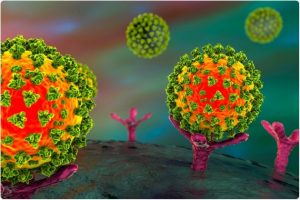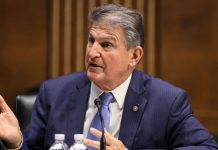A year and a half into the darkness that is the COVID-19 pandemic, we are just beginning to shed light on the pernicious nature of this disease that has killed nearly one million people in the United States alone, according to a new study. The arc of the information that is surfacing from studies and medical reporting indicates the SARS-CoV-2 virus leaves no organ or system unmolested, including the brain and the nervous system.
In a study led by Ayush Batra, a neurologist and Assistant Professor of Neurology (Neurocritical Care) and Pathology at Northwestern University Feinberg School of Medicine, the researchers found neurologic manifestations were present at Covid‐19 onset in 42.2% of people and in 62.7% who were hospitalized. In fact, neurological issues were present in 82.3% of people “at any time during the disease course.” Moreover, according to the Dana Center, a “prospective study reported symptoms severe and pronounced enough to meet diagnostic criteria for neurological disorders in 13.5 percent of 4,491 patients hospitalized with laboratory-confirmed Covid-19.”

It appears that COVID-19 attacks our nervous system in a comprehensive manner causing a constellation of neurological symptoms that attack the sensory and peripheral nerves, the skeletal muscular nerves, and the vascular structures associated with the brain itself. A comprehensive review of the extant medical literature reveals “The most commonly reported neurological manifestations of COVID-19 were myalgia, headache, altered sensorium, hyposmia, and hypogeusia,” while also inducing ischemic stroke, and intracerebral hemorrhage, as well as encephalo-myelitis, and acute myelitis, which are severe inflammations of the brain and spinal cord. The review also implicates COVID-19 in association with Guillain-Barre syndrome and Bell’s palsy.
Another study shows that these neurological manifestations also trigger a host of psychiatric issues, including anxiety disorders (occurring in 17% of patients), mood disorders (14%), substance misuse disorders (7%), and insomnia (5%). Patients admitted to the Intensive Therapy Unit (ITU) faired even worse, manifesting symptoms associated with parkinsonism and dementia as well as psychotic disorders.
And although these disorders are also associated with influenza, the researchers concluded “Most diagnostic categories were more common in patients who had COVID-19 than in those who had influenza.” Moreover, it appears these symptoms linger beyond the hospital stay, for at least six months after follow-ups.
To make matters worse, not everyone who exhibits these neurological maladies was acutely sick. In fact, some people were only mildly ill with regard to the typical respiratory symptomology that SARS-CoV-2 triggers. Sarah Ehekircher was one of those people, who recalled, “I had a fever and a bit of a cough, but I wasn’t that sick. I’d feel really good for a couple of days and think I could come out of quarantine, and then I was sick again.”
But since her recovery, the 52-year-old Seattle resident says she has suffered from a pervasive form of chronic fatigue, making simple tasks like walking up a flight of stairs a struggle to keep her breath. Beyond the fatigue, Ehekircher is battling with cognitive deficits she never had before her illness. “I have difficulty coming up with words. I constantly lose my train of thought. I can’t concentrate enough to read a book. I feel an overwhelming wash of brain fog, and I can’t function,” Ehekircher states.
Perhaps most distressing is the impact on her relationships, as Ehekircher struggles with impulse control, stating. “I’d fire off hurtful text messages and ask myself, ‘why did I do that?’ It was like being a teenager with no impulse control. I didn’t recognize myself.”
There are other stories. Hannah Davis, who contracted COVID-19 in March 2020, has an equally disturbing narrative. Unlike most people with COVID-19, Davis did not develop respiratory or immunological symptoms, such as coughing, difficulty breathing, or fever.
Instead, Davis’ first indication that something was wrong was her inability to read a text message from a friend. From there, it got worse. As reported in National Geographic, “She developed sudden and severe headaches. Her attention span suffered. She couldn’t watch TV or play video games. She had trouble concentrating on everyday tasks like cooking. She’d leave a pot on the stove and forget about it until she smelled food burning. She failed to look both ways while crossing the street, narrowly missing traffic.” Davis states she never had these symptoms before contracting COVID-19.
Sadly, Ehekircher and Davis are not isolated cases. In fact, the National Institutes Of Health (NIH) states that upwards to 30% of people who contract COVID-19 have pronounced nervous system and psychiatric comorbidity, prompting them to convene a meeting to explore the variables and dynamics behind these troubling medical issues.
As part of their meeting goals, the NIH posits: “Many patients also experience Post-Acute Sequelae of SARS-CoV-2 infection (PASC). These include prolonged symptoms of fatigue, impairment of memory, concentration disorder, headache, pain, insomnia, anxiety, PTSD, and depression. Pathologically there is controversy about detection of SARS-CoV-2 in the brain and current thinking is that the virus does not infect the brain. However, there is strong evidence for microvascular disease, inflammation and immune infiltration in the brain.”
And while most children fully recover from COVID-19, some children also appear to be at risk for significant nervous system complications. In a systematic review of literature conducted by Neurology International, the researchers found that for children that presented with severe neurological manifestations, there was evidence of stroke, encephalitis, encephalopathy, and Guillain–Barre syndrome, all of which point to some type of nervous system involvement.
Particularly troubling was the high incidence of multisystem inflammatory syndrome in children (MIS-C). The authors conclude, “Direct neuroinvasion and the exaggerated immune response in some patients seem to be the most critical factors triggering these manifestations,” pointing once again to the inflammatory aspects of COVID-19.
The exaggerated immunological responses may shed light on the nature of how the SARS-CoV-2 virus functions. In a study titled, Exploratory neuroimmune profiling identifies CNS-specific alterations in COVID-19, the authors tentatively concluded that patients with COVID-19 infections showed biological markers (antibodies) in their cerebral spinal fluid for an overly robust autoimmune response. In other words, there were indications that the immune systems of these people were overreacting and attacking the nervous system, thus potentially generating neurological symptoms that are associated with COVID-19 infections.
However, it is important to note that the researchers were not able to establish a causal connection between the presence of the antibodies and any inflammatory response. Furthermore, this study lacked a control group to act as a point of comparison.
The reality is that our collective understanding of the effects of COVID-19 is very limited, with most conclusions being tentative in nature. Viruses are inherently complex, and teasing apart causality from correlation is always a barrier. Still, the picture is emerging that for some people, likely a fairly small percentage, COVID-19 complications may be pervasive, persistent, and for the time being, challenging to treat.
At Newsweed.com, we adhere to three simple principles: truth, balance, and relatability. Our articles, podcasts, and videos strive to present content in an accurate, fair, yet compelling and timely manner. We avoid pushing personal or ideological agendas because our only agenda is creating quality content for our audience, whom we are here to serve. That is why our motto is ”Rolling with the times, straining for the truth.”
Your opinion matters. Please share your thoughts in our survey so that Newsweed can better serve you.
Charles Bukowski, the Los Angeles beat poet that captured the depravity of American urban life once said, “There is something about writing poetry that brings a man close to the cliff’s edge.” Newsweed is proud to stand in solidarity and offer you a chance to get close to the cliff’s edge with our first Power of Poetry Contest. Are you a budding bard, a versatile versifier, a rhyming regaler? Do you march to the beat of iambic pentameter, or flow like a river with free verse? If so, here’s your opportunity to put your mad poetic chops to the test. Enter our poetry contest for bragging rights and an opportunity to win some cash!






